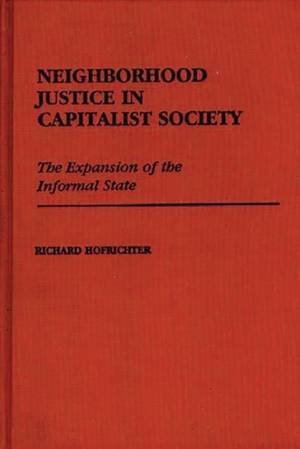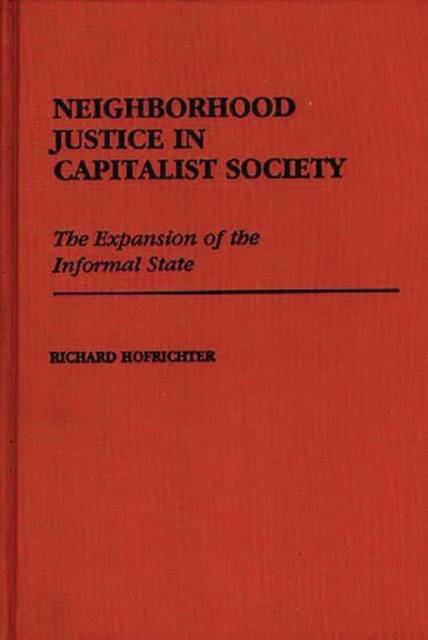
- Afhalen na 1 uur in een winkel met voorraad
- Gratis thuislevering in België vanaf € 30
- Ruim aanbod met 7 miljoen producten
- Afhalen na 1 uur in een winkel met voorraad
- Gratis thuislevering in België vanaf € 30
- Ruim aanbod met 7 miljoen producten
Zoeken
€ 110,45
+ 220 punten
Omschrijving
The management of interpersonal social conflict within the American judicial system is changing. Of particular interest is the trend toward informal, decentralized alternatives to the courts for the resolution of many civil disputes. A manifestation of this trend, Neighborhood Dispute Resolution or NDR offers a means of resolving conflicts in a voluntary, peaceable manner without the intervention of attorneys. Proponents of NDR say that it is economical, efficient and fair. NDR, however, may not be the panacea it appears to be on the surface, argues the author. A Marxist interpretation of recent developments in state-sponsored alternatives to courts for the resolution of disputes, this book devises a framework for exploring the relationship between disruptions in reproducing the social order of American capitalism and transformations in the capitalist state that make these dispute mechanisms possible.
Specificaties
Betrokkenen
- Auteur(s):
- Uitgeverij:
Inhoud
- Aantal bladzijden:
- 228
- Taal:
- Engels
- Reeks:
Eigenschappen
- Productcode (EAN):
- 9780313256776
- Verschijningsdatum:
- 12/08/1987
- Uitvoering:
- Hardcover
- Formaat:
- Genaaid
- Afmetingen:
- 161 mm x 230 mm
- Gewicht:
- 426 g

Alleen bij Standaard Boekhandel
+ 220 punten op je klantenkaart van Standaard Boekhandel
Beoordelingen
We publiceren alleen reviews die voldoen aan de voorwaarden voor reviews. Bekijk onze voorwaarden voor reviews.











